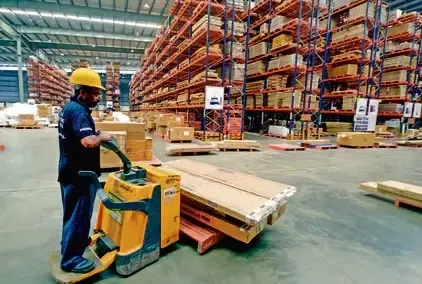GCC Workforce in India to Hit 3 Million by 2030, Tier 2 Cities at the Forefront

Synopsis
Key Takeaways
- GCC workforce projected to reach 3 million by 2030.
- Significant entry-level jobs for freshers.
- Market expected to be worth $110 billion.
- 30-40% of new jobs in tier 2 cities.
- Women currently make up 40% of the workforce.
New Delhi, April 23 (NationPress) The workforce of global capability centres (GCC) in India is anticipated to reach 3 million by 2030, with a substantial number of these roles aimed at fresh graduates, thus bolstering economic development, according to a report released on Wednesday.
As India emerges as the favored hub for GCCs, the sector is predicted to be valued at $110 billion by 2030. This expansion is expected to generate around 150,000 jobs by 2026, as reported by FirstMeridian Business Services.
“The GCC landscape in India has transitioned from a scalable sector to one of strategic significance. With multinational companies redefining the skill sets they seek from Indian professionals, the nation has established a flourishing ecosystem backed by comprehensive upskilling initiatives, policies, and development programs spanning from metropolitan areas to tier 2 cities,” stated Sunil Nehra, CEO–IT Staffing, FirstMeridian Business Services.
Currently, women constitute 40% of the GCC workforce in India, a figure expected to increase as efforts towards inclusion progress.
While the overall gender ratio within the GCC workforce is likely to remain stable, India is predicted to witness a 3-5% enhancement in gender diversity, with companies emphasizing diversity, equity, and inclusion (DEI).
The GCC ecosystem in India is experiencing rapid growth, driven by various factors, including a diverse talent pool, high digital literacy, cost-effectiveness, and the participation of numerous industries such as IT, AI/ML, and data engineering.
Tier 2 cities are pivotal in advancing the Indian GCC sector. These locations provide a burgeoning talent pool, affordable infrastructure, lower attrition rates, and cost efficiencies.
Initially focused on transactional services, GCCs now cater to crucial sectors such as engineering, cybersecurity, and customer experience for multinational corporations.
It is projected that 30-40% of new GCC job opportunities will arise in these cities over the next three to four years.
Beyond technology, sectors like manufacturing, financial services, retail, healthcare, travel, and hospitality are also playing a role in India’s diverse employment growth, as noted in the report.










